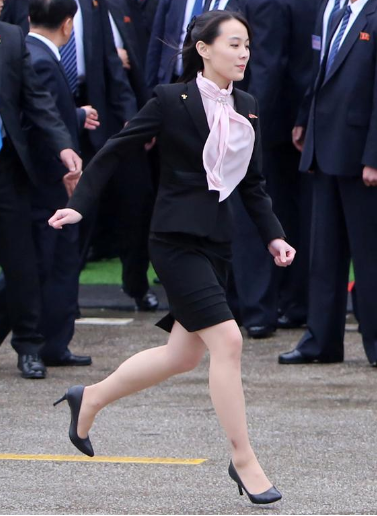North Korea seen reassembling rocket test site
Satellite imagery suggests that North Korea may be taking steps to reactivate a partially decommissioned long-range rocket test site on the country’s west coast. Experts say they see evidence that workers are rebuilding at the Sohae Satellite Launching Station. In a matter of days, a rocket-engine test stand and a large transfer structure have been reassembled, according to Joseph S. Bermudez Jr., a senior fellow for imagery analysis at the Center for Strategic and International Studies.
The structures were taken down over the course of last summer, Bermudez says, and reassembled in a matter of days. “We’ve seen a remarkably quick rebuilding,” he says.
News of the apparent activity comes less than a week after a second summit between the U.S. and North Korea ended in stalemate. President Trump and North Korean leader Kim Jong Un met in Hanoi, Vietnam, on Feb. 27 and 28. But the two sides wrapped up talks early after it became apparent that they were far apart on any deal over North Korea’s nuclear program.
The Sohae facility, also referred to as Dongchang-ri and Tongchang-ri, is the site from which North Korea attempted satellite launches in 2012 and 2016. It’s also the location of a test stand that Pyongyang has used to fire some of its rocket engines on the ground. More recently, Sohae figured prominently in the ongoing talks between North Korea and the United States. Last June, after the first U.S.-North Korea summit, in Singapore, Trump said Kim had given his word that he would close “a major missile-engine testing site.”
“I got that after we signed the agreement,” Trump said at a press conference following his meeting with Kim. “I said, ‘Do me a favor. You’ve got this missile-engine testing site. We know where it is because of the heat.’ … I said, ‘Can you close it up?’ He’s going to close it up.”
During a summit in September with South Korean President Moon Jae-in, Kim followed up with an official announcement that he was closing Sohae. (In that announcement, he referred to Sohae as Dongchang-ri.) Satellite imagery suggested that North Korea did begin disassembling the site in the summer of 2018.
Now, Bermudez says, the test stand appears almost completely reassembled, and the building has been rebuilt with all but part of its roof. The work happened sometime between Feb. 20 and March 2, when the commercial images were taken by the company DigitalGlobe. Given that the site has lain dormant for months, Bermudez believes the work probably took place after Feb. 28, when the Trump-Kim summit concluded unsuccessfully.
Even if Sohae is being rebuilt after the failed summit, Kim isn’t violating any agreement with the U.S., notes David Wright, co-director of the global security program at the Union of Concerned Scientists. Ultimately, the decision to rebuild Sohae, like the decision to take it apart, may be largely symbolic. Bermudez says the facility is not believed to be at the center of North Korea’s development of intercontinental ballistic missiles.
“All North Korean ballistic missiles today, maybe with one or two exceptions, can be launched from mobile launchers,” he says.
[NPR]

